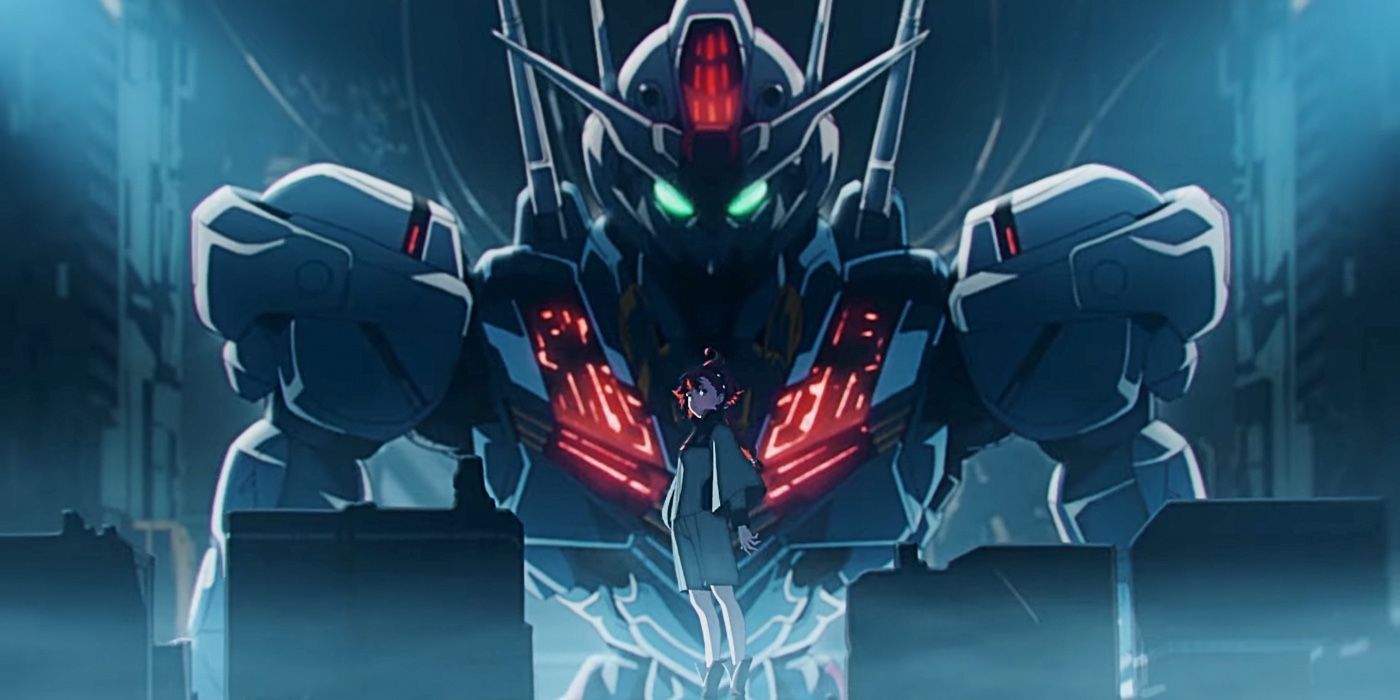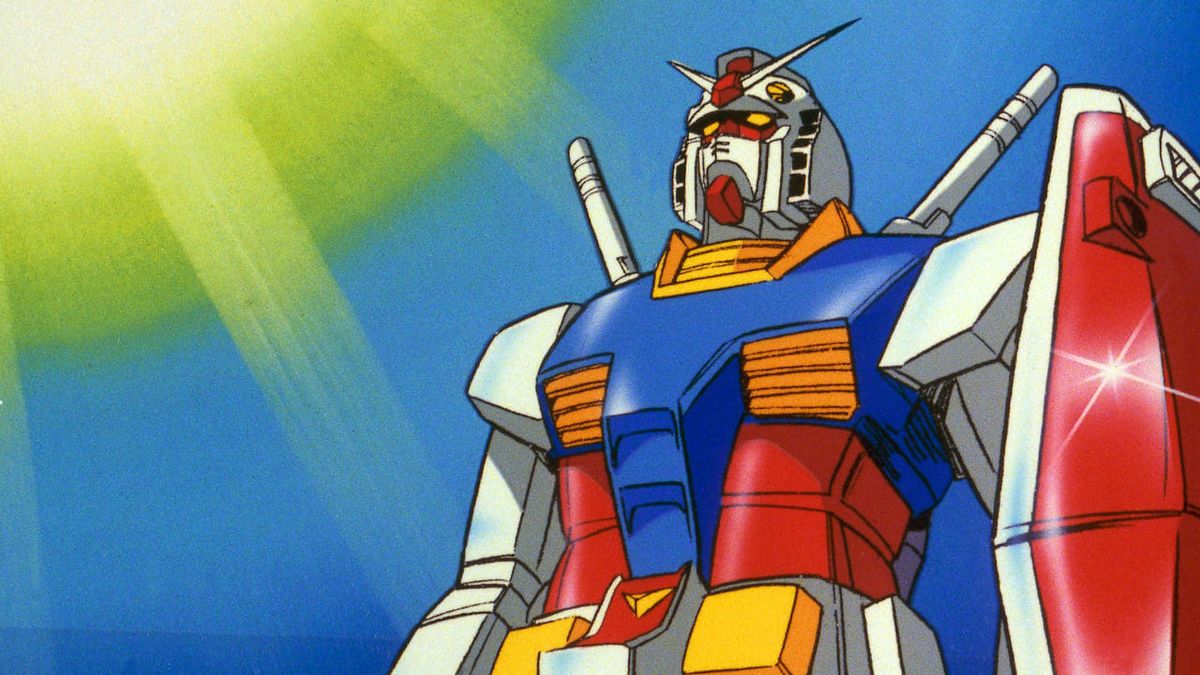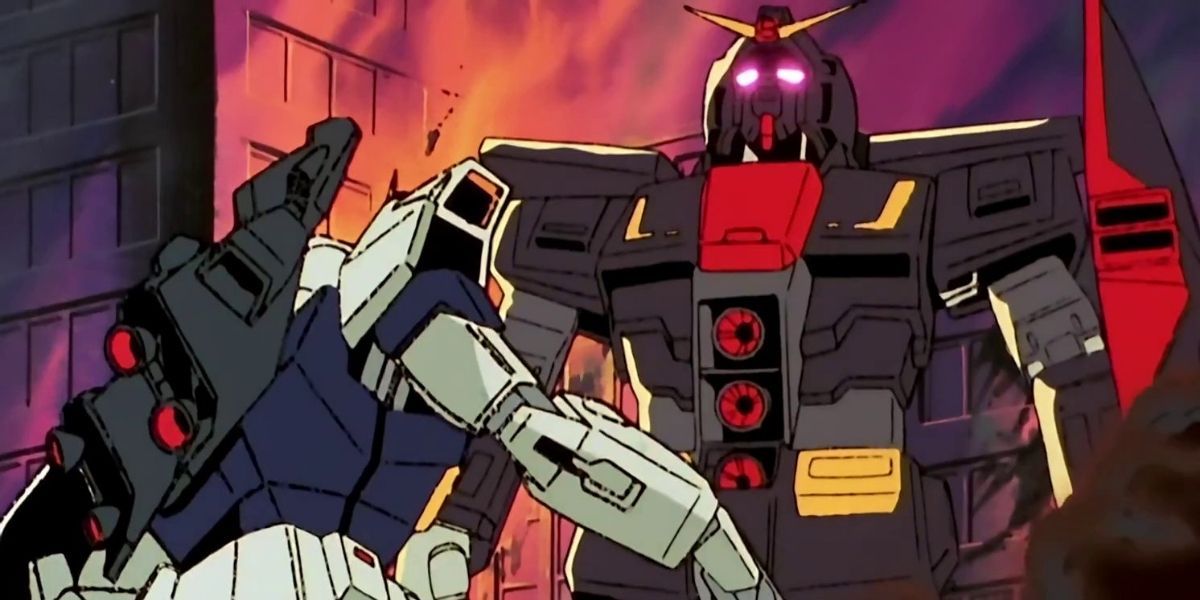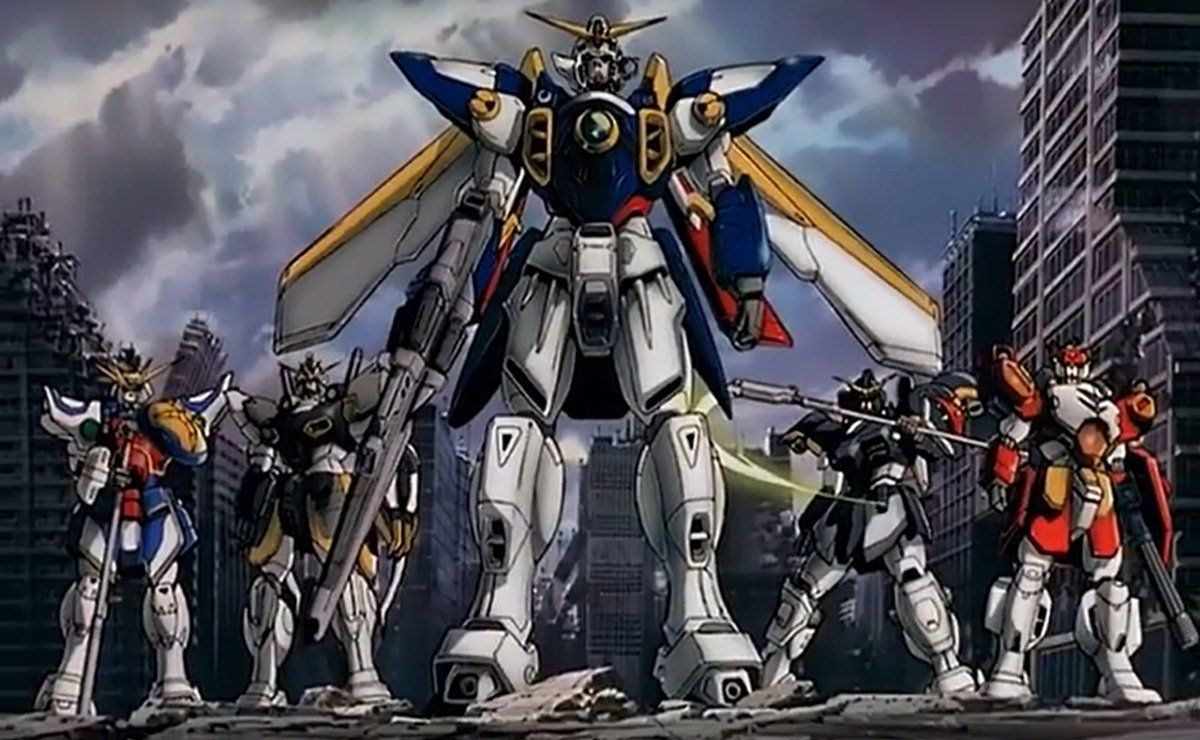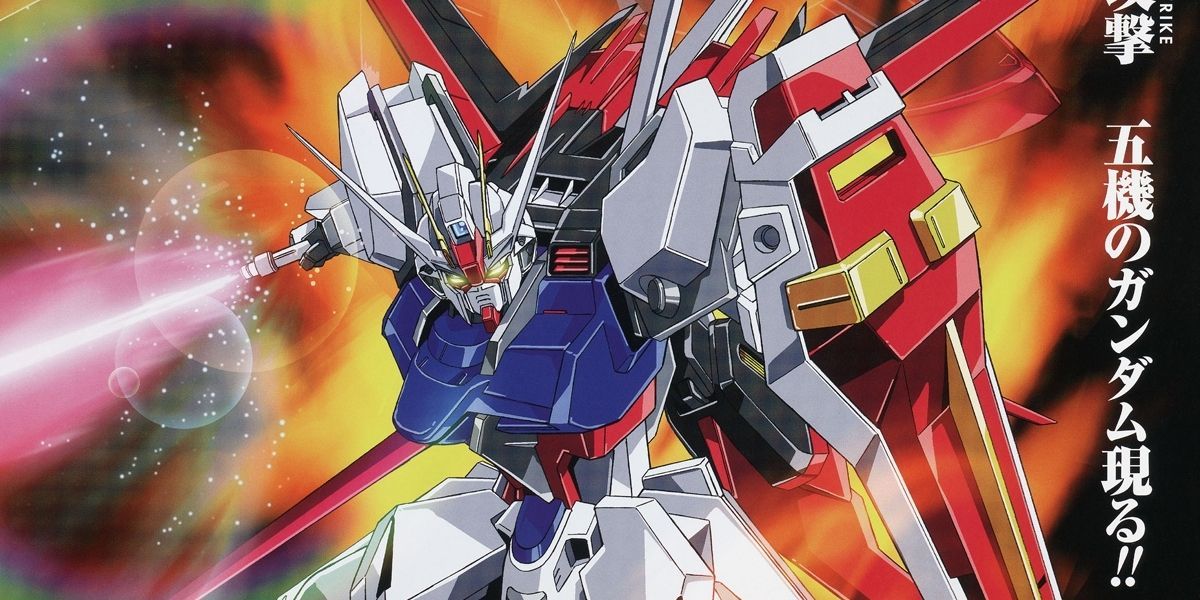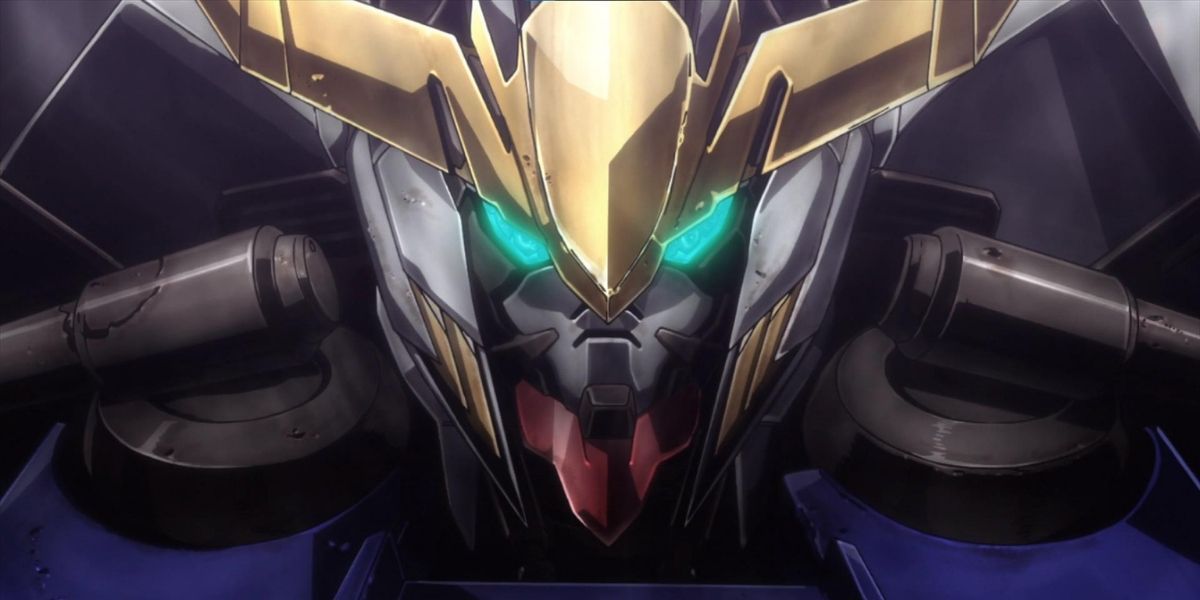It’s an exciting time to be a Gundam fan. We’re getting our first looks at Mobile Suit Gundam - the Witch from Mercury, the first new mainline series since 2015’s critically-acclaimed but somewhat divisive Iron-Blooded Orphans and the first Gundam series to feature a female lead. Unfortunately, we don’t know any details beyond that. The Witch from Mercury’s only trailer to date is a thirty-second teaser showing the new protagonist standing in front of her Gundam. While admittedly a very cool visual, it doesn't give the viewer much to chew on. So if that little taster left you starving for more giant robots, here are five essential mainline Gundam series you should revisit to whet your appetite. But first, check out the trailer below:
Mobile Suit Gundam (1979)
The first and arguably most influential work in the franchise, 1979’s Mobile Suit Gundam (or Gundam 0079, as it’s sometimes known for disambiguation purposes) was not the first anime to feature giant robots. But it was a highly ambitious series, taking the visual language of sci-fi predecessors like Galaxy Express 999 and more adventure-oriented mecha anime like Getter Robo and Gaiking to create a very mature story about the political drivers of war, its costs in terms of human life, and the toll it takes even on the humans who survive it.
Set in a not-too-distant future where humanity has begun to colonize the wider solar system, the story follows teenage mechanic/mobile suit pilot Amuro Rey as he and a ragtag group of civilian space colonists are swept up in events far beyond their control. Crucially, the series goes to great lengths to emphasize that there are no good guys or bad guys in this story. Neither the space-based Principality of Zeon nor the Earth Federation is guiltless in the conflict, and even the most antagonistic characters are shown to be multifaceted people, not cackling cartoon villains. The real "villain", if there can be said to be one, is war itself. Some aspects haven’t aged particularly well, and the animation is of fairly low quality even by the standards of the time, but this is the series that made the Gundam franchise what it is, and all mecha anime that followed owes it a debt of gratitude. Mobile Suit Gundam is available for streaming on Funimation.
Mobile Suit Zeta Gundam (1985)
Mobile Suit Zeta Gundam is a direct follow-up to Mobile Suit Gundam and brings back that series’ charismatic antagonist Char Aznable alongside new teenage mobile suit pilot Kamille Bidan as they navigate the bloody aftermath of the war. This time, Char is at least somewhat on the protagonist’s side, but the complex nature of the post-war political landscape, in which the end of the war only seems to have made both sides more bitter and more brutal, strains alliances every step of the way and threatens the sanity of everyone involved. No new ground is being broken here - this is really Mobile Suit Gundam, More Of That. But the animation and music have seen a significant upgrade and the story is everything its predecessor was: complex, dramatic, and bloody, but with a note of hope that saves it from devolving into grinding misery. In many ways, this is the series Gundam 0079 wanted to be. Mobile Suit Zeta Gundam is available exclusively on Funimation.
Mobile Suit Gundam Wing (1995)
A.K.A. the one you’ve definitely heard of. Mobile Suit Gundam Wing was the West’s introduction to the franchise and retains a devoted fan following to this day. Its innovation was to feature an ensemble cast of five Gundam pilots along with a strong supporting cast, something that plays well to the franchise’s character-driven strengths. The five pilots, each trained independently and sent to battle Earth’s forces from a different orbital colony, aren’t exactly a well-oiled machine. They often find themselves working at cross purposes, in fact, never truly seeming to agree on the best path forward for them. Howeverm the chemistry between them, even at their worst, is undeniable. Equally notable is lead pilot Heero Yuy’s contentious relationship with Earth Federation-affiliated blooming politician Relena Peacecraft, a formidable figure in her own right, and how through their association they begin to turn the world away from war. Mobile Suit Gundam Wing is available on both Crunchyroll and Funimation.
Mobile Suit Gundam SEED (2002)
Taking place in an alternate timeline, Mobile Suit Gundam SEED bases its narrative on a largely abandoned concept from the original Mobile Suit Gundam: Newtypes, humans who have developed various and nebulously-defined psychic abilities as an adaptation for living in space. SEED’s Newtypes are called Coordinators and are explicitly genetically engineered to wield psychic powers. They’re also hated and feared by the Earth-dwelling humans without those powers. Thus, the Coordinators-versus-Naturals conflict turns SEED into a narrative about prejudice in war and its self-destructive potential.
Sadly, this also pulls SEED away from earlier themes in which the good guy/bad guy dichotomy was explicitly rejected in favor of a somewhat simpler narrative of Earth being the clear aggressor. However, Gundam at its heart has always been a character drama, and friends-turned-foes Kira Yamato and Athrun Zala carry that torch well. Their relationship, contentious though it is, inspires both to become peacemakers in a war that seems to have no end goal but the destruction of the Other. Mobile Suit Gundam SEED is available on Crunchyroll.
Mobile Suit Gundam: Iron-Blooded Orphans (2015)
Taking place hundreds of years in the future when humanity’s colonization of the Solar System has progressed much further outward, Mobile Suit Gundam: Iron-Blooded Orphans is the last mainline Gundam franchise to date and one that continues its tradition of ambitious storytelling and great character drama. The titular orphans are child soldiers, earmarked as gun fodder, who turn on their commanders mid-battle with the aid of a Gundam and go on to form a mercenary group of their own.
Their group, Tekkaden, operates in a world controlled not by sinister Earth governments or unhinged colony terrorist groups but by multinational corporations, and these moneyed interests turn out to be the real villain of the series the way war has been in previous iterations. Iron-Blooded Orphans takes on issues of poverty, colonization, and the toll battle takes on children and adolescents who are involved in it. It also carries forward another Gundam tradition: tragedy, angst, and a lot of death. However, it ends with small, bright slivers of hope carried forward into the future. Mobile Suit Gundam: Iron-Blooded Orphans is available on Crunchyroll and FunimationNow.

